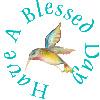From Wikipedia, the free encyclopedia
Not to be confused with the Dominican Republic.
Commonwealth of Dominica
OUR FLAG

Motto: "Après Bondie, C'est La Ter" (Antillean Creole)
"After God is the Earth"
Anthem: Isle of Beauty, Isle of Splendour
Capital - Roseau
Official language English
OUR COAT OF ARMS

Demonym Dominican
Government Parliamentary republic
- President Nicholas Liverpool
- Prime Minister Roosevelt Skerrit
Independence from the United Kingdom
- Date November 3, 1978
Area
- Total 751 km² (184th) 290 sq mi
- Water (%) 1.6
Population
- July 2008 estimate 72,514 (195st)
- 2003 census 71,727
- Density 105/km² (95th) 272/sq mi
GDP (PPP) 2005 estimate
- Total $468 million (177th)
- Per capita $6,520 (91st)
HDI (2007) ▲0.798 (medium) (71st)
Currency East Caribbean dollar (XCD)
Time zone (UTC–4)
Internet TLD .dm
Calling code [[+1-767]]
1 Rank based on 2005 UN estimate.
The Commonwealth of Dominica, commonly known as Dominica, is an island nation in the Caribbean Sea. The name is pronounced /ˌdɒmɪˈniːkə/ (do-mi-NEE-cuh). In Latin, its name means "Sunday", which was the day on which it was discovered by Christopher Columbus.
Dominica's pre-Columbian name was Wai'tu kubuli, which means "Tall is her body".[1] The indigenous people of the island, the Caribs, have a territory similar to the Indian reserves of North America. However, its official language is English because of its history as a British colony, territory, and state though a French creole is spoken by many, especially people of older generations. The demonym or adjective of this country is "Dominican" in English, same as that for the Dominican Republic but unlike the Dominican Republic, in which the stress is on the first "i", the stress is on the second "i".
Dominica has been nicknamed the "Nature Isle of the Caribbean" for its seemingly unspoiled natural beauty. It is one of the youngest islands in the Lesser Antilles, still being formed by geothermal-volcanic activity, as evidenced by the world's second-largest boiling lake. The island features lush mountainous rainforests, home of many very rare plant, animal, and bird species. There are xeric areas in some of the western coastal regions, but heavy rainfall can be expected inland. The Sisserou parrot, the island's national bird, is featured on the national flag. Dominica's economy is heavily dependent on both tourism and agriculture.
For the next hundred years Dominica remained isolated, and even more Caribs settled there after being driven from surrounding islands as European powers entered the region. France formally ceded possession of Dominica to the United Kingdom in 1763. The United Kingdom then set up a government and made the island a colony in 1805. The emancipation of African slaves occurred throughout the British Empire in 1834, and, in 1838, Dominica became the first British Caribbean colony to have a Black-controlled legislature. In 1896, the United Kingdom reassumed governmental control of Dominica turning it into a crown colony. Half a century later, from 1958 to 1962, Dominica became a province of the short-lived West Indies Federation. In 1978 Dominica finally became an independent nation.



No comments:
Post a Comment